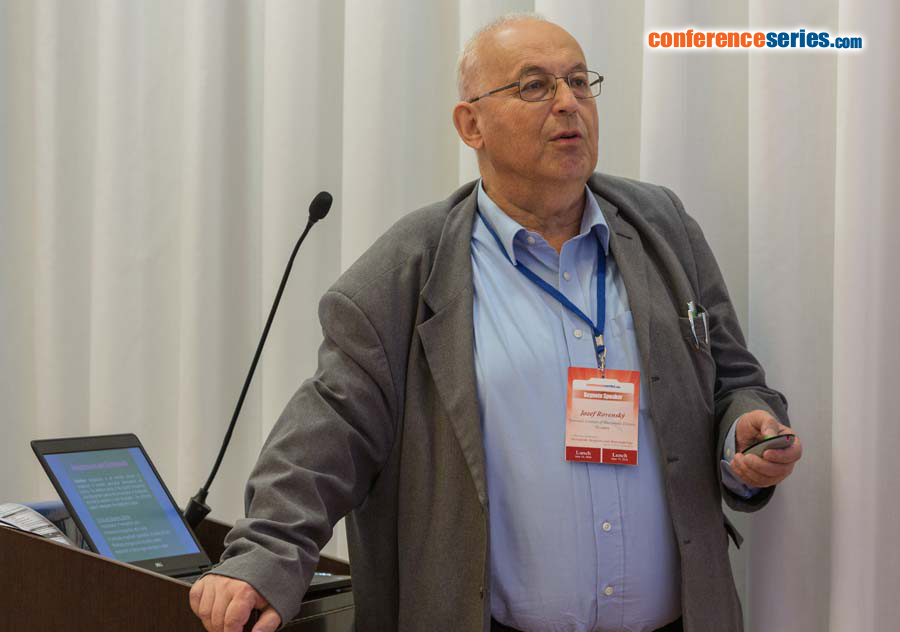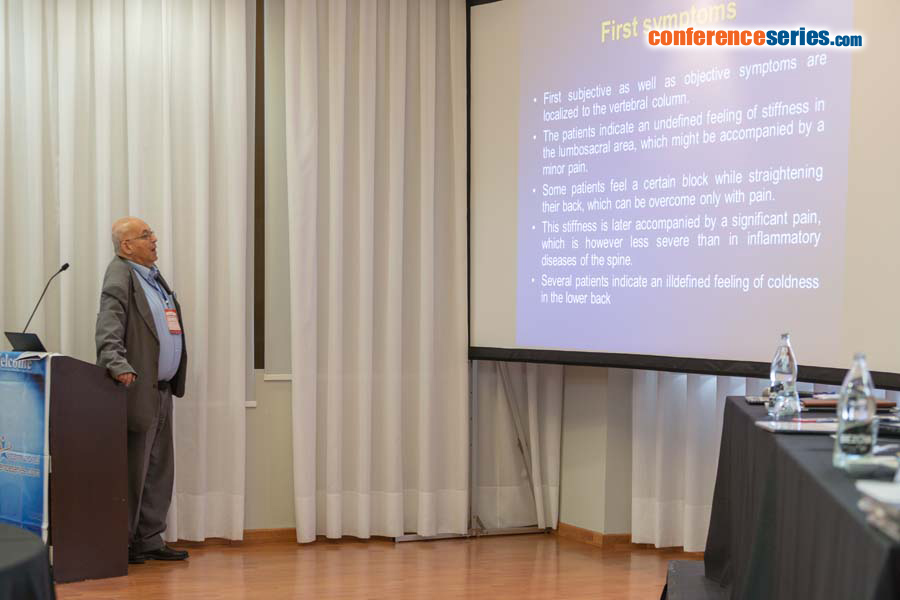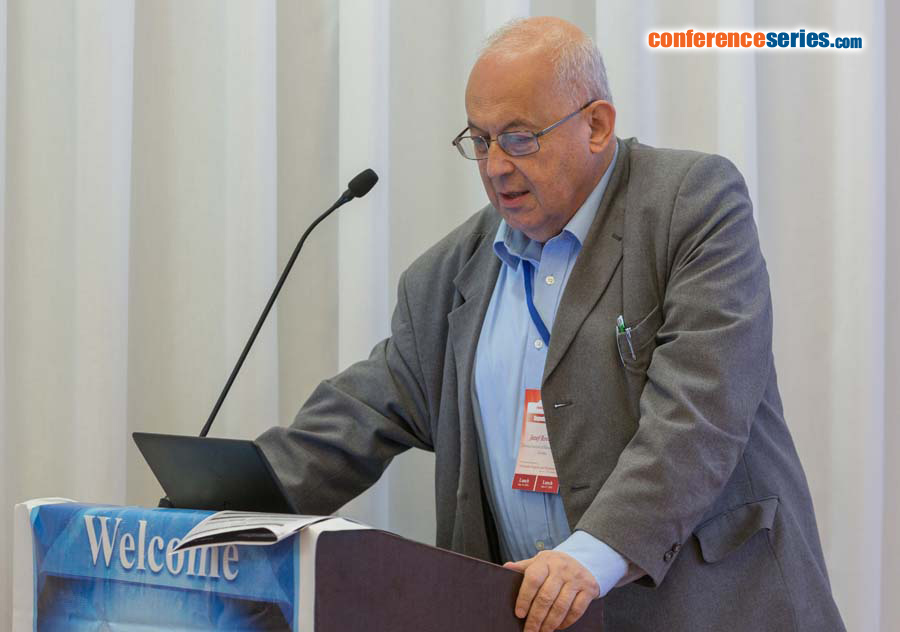
Jozef Rovenský
National Institute of Rheumatic Disease, Piestany
Slovakia
Title: Alkaptonuria and Ochronosis
Biography
Biography: Jozef Rovenský
Abstract
Alkaptonuria is a rare inherited genetic disorder of phenylalanine and tyrosine metabolism. This is an autosomal recessive condition that is due to a defect in the enzyme homogentisate 1,2-dioxygenase, which participates in the degradation of tyrosine. As a result, homogentisic acid and its oxide, accumulate in the blood and are excreted in urine in large amounts. The polymer of homogentisc acid called alkapton, impregnates bradotrophic tissues. rnThe first signs of deposition of the ochronotic pigment can be detected accidentally during professional examination of the anterior segment of the eye. The ochronotic pigmentation of the ocular structures is present in approximately 70 % of patients. In addition to the sclera, lumps of the ochronotic pigment can be found in the conjunctiva and cornea. Since similar pigmentation of the cornea is not present in other medical conditions, this finding is regarded as pathognomic for alkaptonuric ochronosis. The diagnosis of alkaptonuria is based on the characteristic findings in urine. Alkaptonuria patients do not seek medical help due to difficulties with vision – they are without subjective complications. In parallel with the ocular manifestations, ochronotic changes can be found in the hearing organ. Color changes of the auricle are visible in the 10th to 15th year of life. Also typical for alkaptonuric ochronosis are changes in the skin, mainly brownish or bluish pigmentation of the skin under the arm, in the face, neck and hands, and rarely on the nails. Given their visibility they may be relevant for the early diagnosis alkaptonuric ochronosis. Ochronotic pigment is deposited also on the internal organs. In the field of cardiovascular organs it is the myocardium and blood vessels. From a clinical point of view, the most serious process takes place in the joints and is called ochronotic arthropathy. Therapy of alkaptonuria with Nitisinone is underway.
Speaker Presentations
Speaker PPTs Click Here




